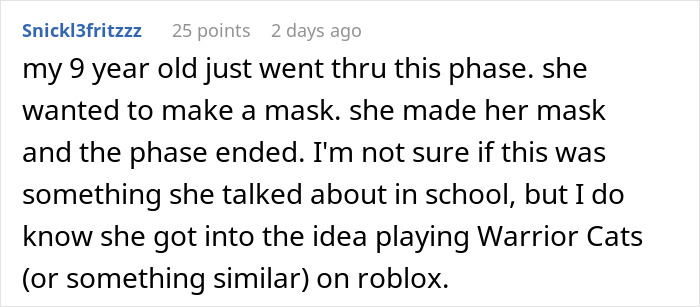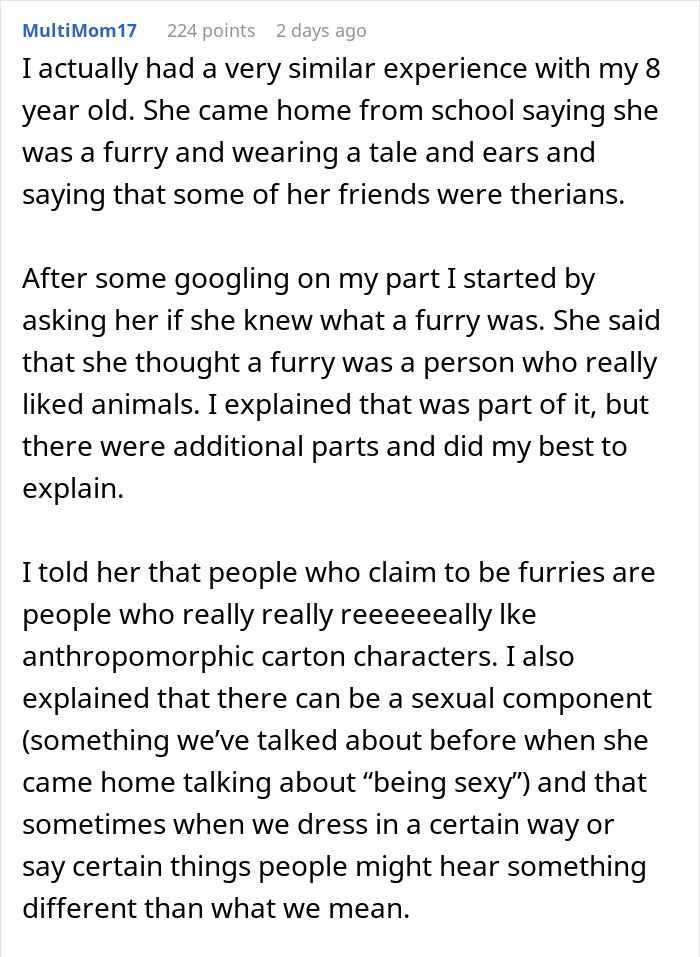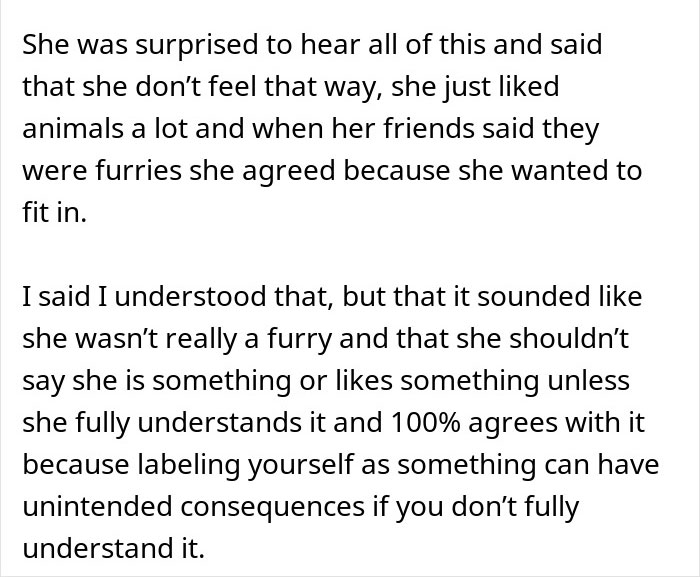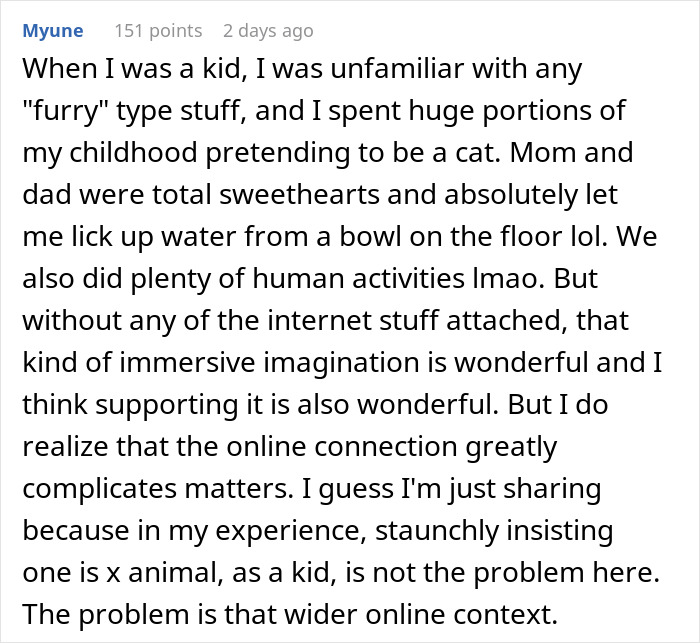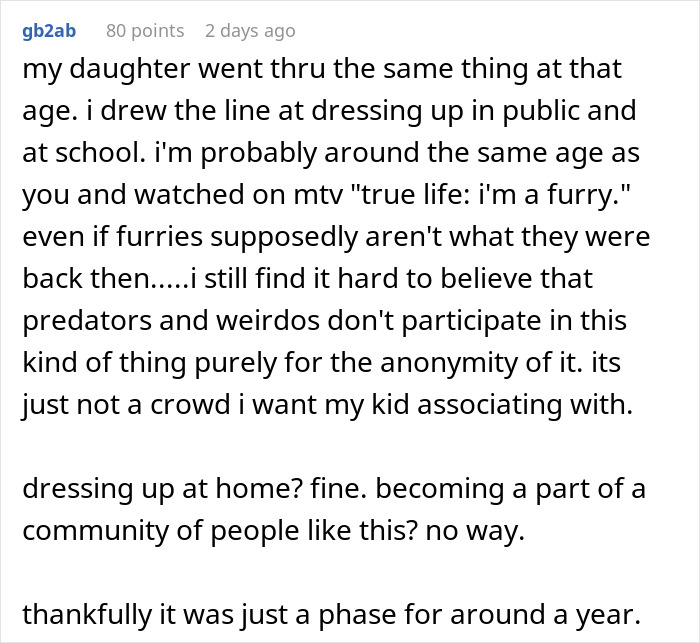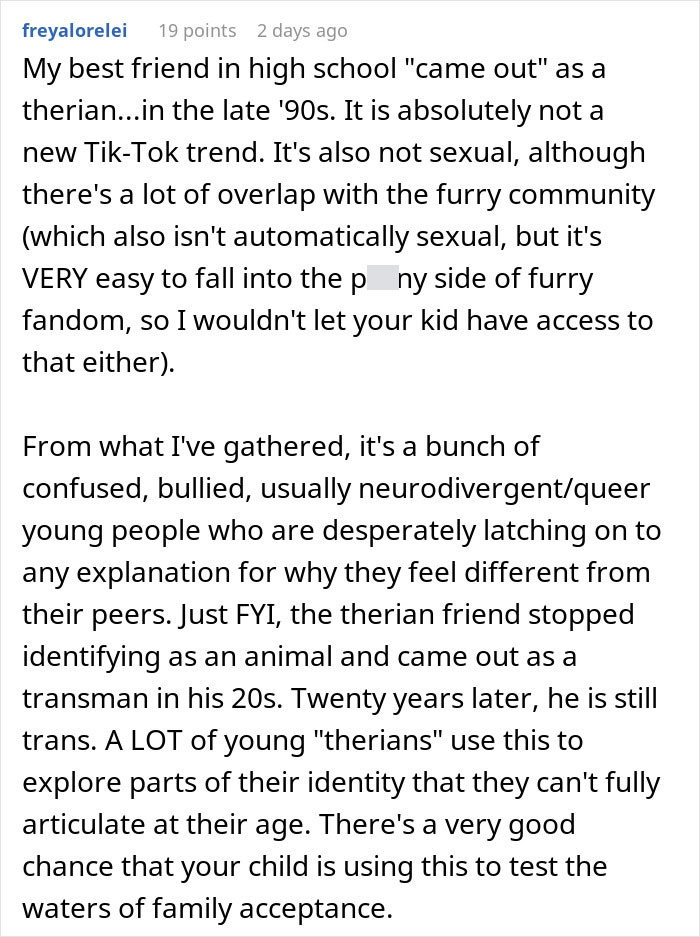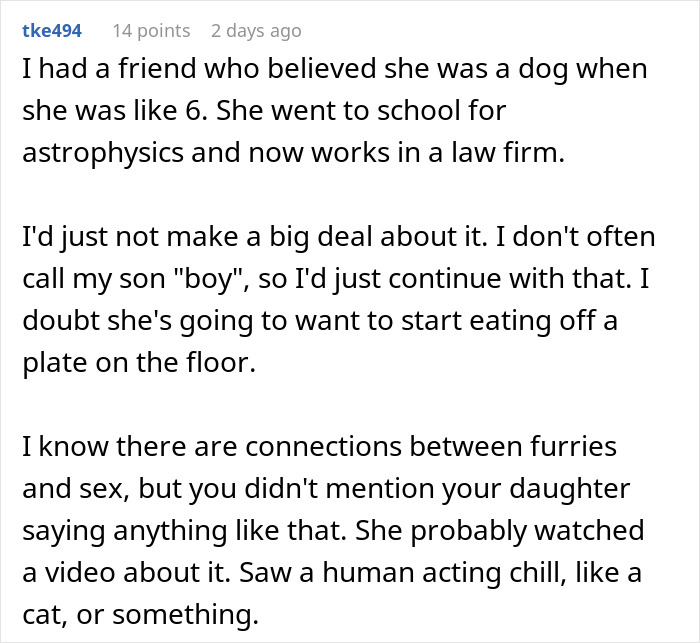It can be tough for some parents to see their child go through an identity crisis. It usually happens as they enter puberty, which, for many, can be a challenging experience.
Reddit user Brief_Sun_5937 shared today’s story about a rather unique situation involving her nine-year-old daughter. The young mom was at a loss and took to the internet for some advice.
Bored Panda reached out to the original poster, who has yet to respond. We will update the article once we receive a reply.
Many children go through a period of identity crisis as they try to find themselves while growing up

Image credits: Satura_/Envato elements (not the actual photo)
The nine-year-old girl in this story is going through this challenging phase, which has left her mom feeling uncomfortable
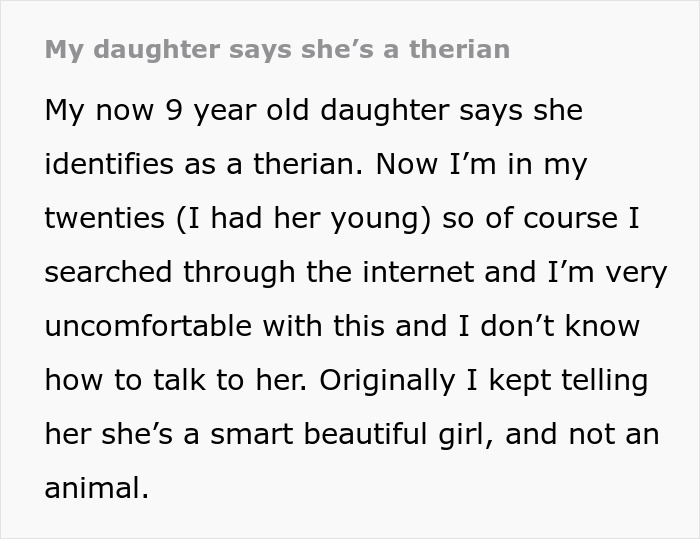
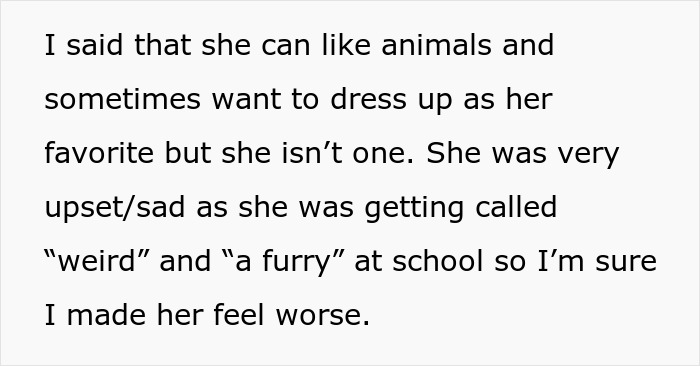
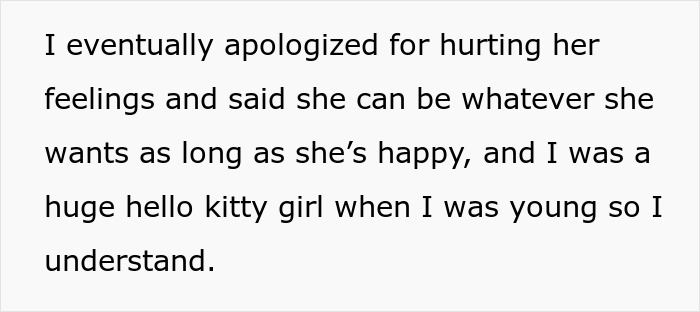
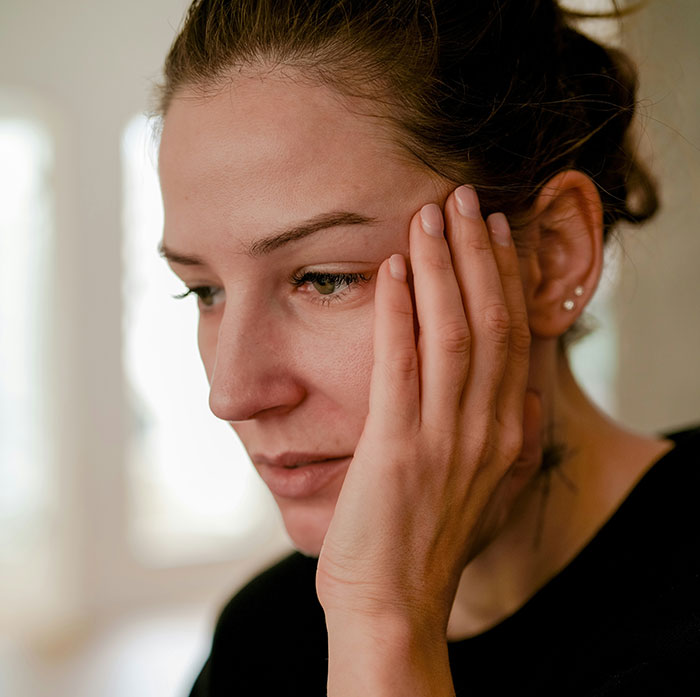
Image credits: Michael Heise/Unsplash (not the actual photo)
The young mother is now seeking the internet’s help on how to handle her complex predicament
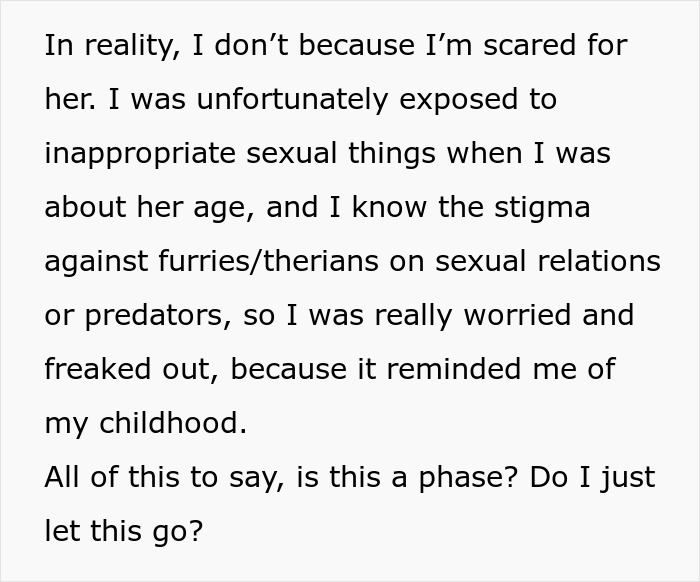
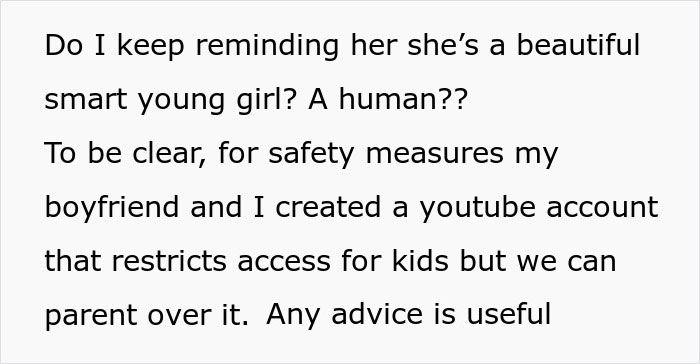
Image credits: Brief_Sun_5937
Having a nonhuman identity is normal among children entering adolescence, according to experts

Image credits: hwilson8/Envato elements (not the actual photo)
According to therapist Vilte Baliutaviciute, MA, LPC, of IntraSpectrum Counseling in Chicago, having a nonhuman identity is generally par for the course for any young individual growing up. Here’s what she wrote in her article:
“Nonhuman identity, like other facets of identity, tends to go through a developmental period (usually in adolescence) and stay stable throughout the lifespan. Some research suggests a possible overlap with other forms of neurodiversity, but the identity itself is not inherently pathological.
“Most clinical and sociological research on therian and otherkin communities agrees: this is best approached as diversity, not deficit. Someone can have a rich, well-adjusted life while still identifying as a bear or kobold.”
Human behavior writer Michael Bond echoed a similar sentiment in a piece he wrote for UnHerd. Having friends who identified as therians, he developed a deeper understanding of what they go through.
“Therians are not delusional or psychotic,” he wrote. “Their animalistic feelings are a perpetual feature of their lives and are not alleviated by medication. They are aware, often to their profound disappointment, that they can never transform into animals.”
Therians live complicated lives, and all they want is acceptance
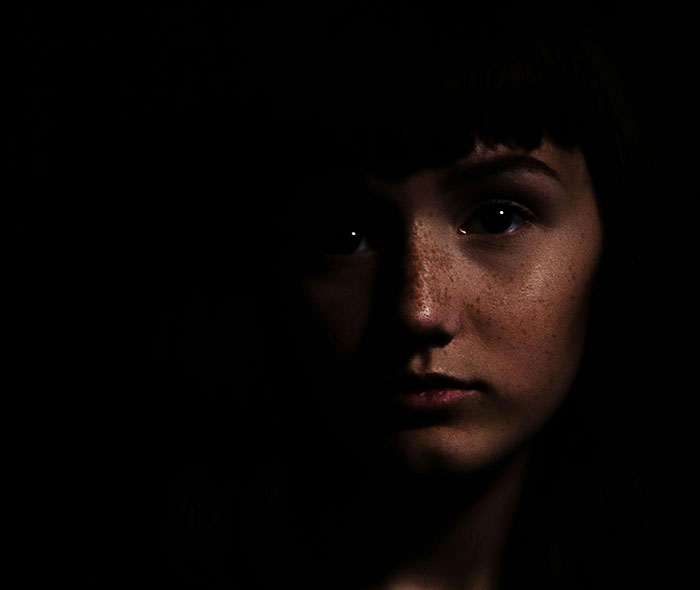
Image credits: Gerardo Infante/Envato elements (not the actual photo)
As Bond explains in his piece, many psychologists see the same distress levels between Therians and people who don’t feel like the gender they were born with.
“For Therians, ‘finding yourself” — that nebulous ideal promoted by the self-help industry — is obligatory,” he wrote. “Although discovery may bring relief, it does not help with the bigger question: why am I this way?
“Science doesn’t provide many answers, so they can only speculate. Therianthropy may be a developmental response to early trauma or a childhood fixation on animals, or it may be a result of abnormal brain wiring. People of a spiritual inclination might think of it in terms of reincarnation or a ‘misplaced soul.’”
Bond also spoke with a Therian friend, BearX, who leads a normal life as a married man with two children and an engineering career. The family supposedly lives a “comfortable middle-class life” in a “nice house.” But deep down, he had a different feeling about who he really was and should be.
“I had an internal sense as a kid that I was supposed to be bigger, heavier,” said BearX. “Later, I worked out that bears fit everything that I felt. It led me to think that maybe I was supposed to have been born a bear, and there was some kind of cataclysmic failure in the universe’s sorting system.”
Ultimately, all BearX wants is to be treated the same way as the rest of the population.
“Our lives would be immeasurably improved if people accepted it if it wasn’t considered strange,” he told Bond.
Parents generally want their children to fit into society and live normal lives. Therefore, the cause for concern of the mom in this story is understandable, given that her daughter may have a rough, difficult time growing up. What do you think, pandas?
The mom provided more information to add to her post
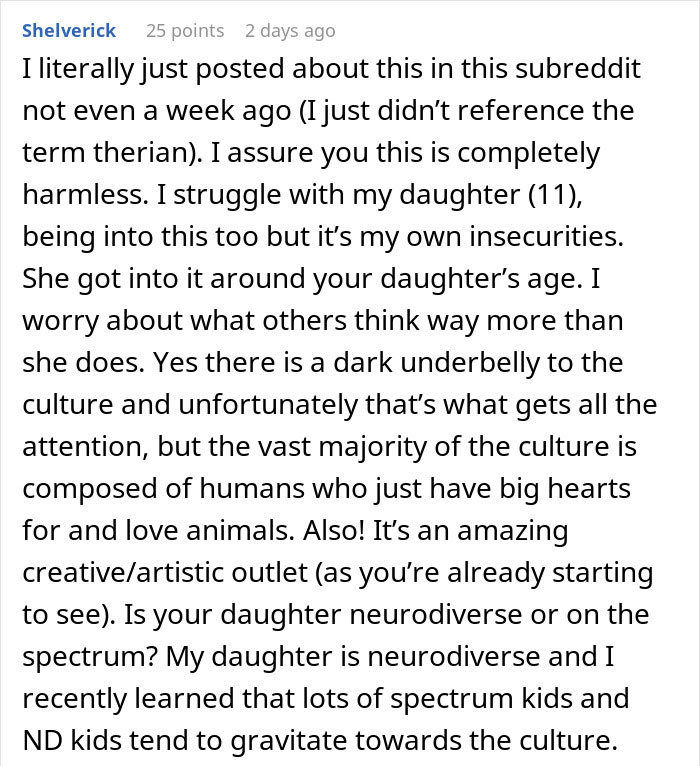
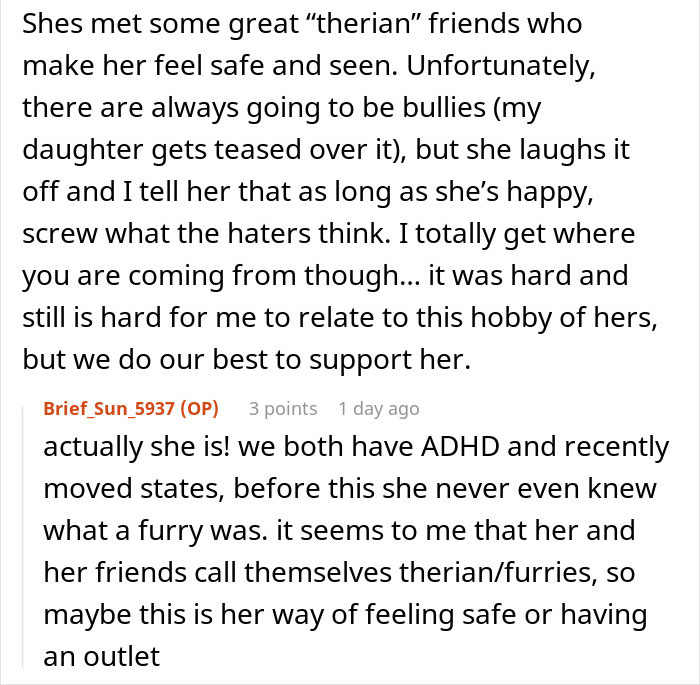
Some commenters gave their reactions and pieces of advice
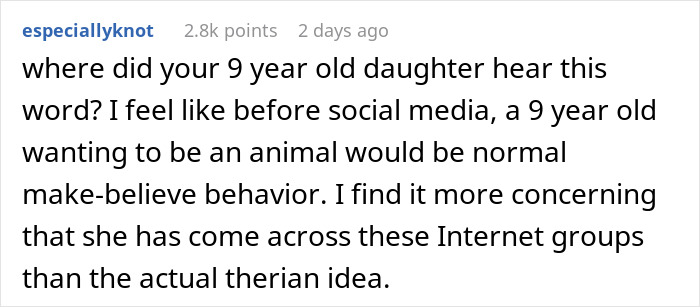



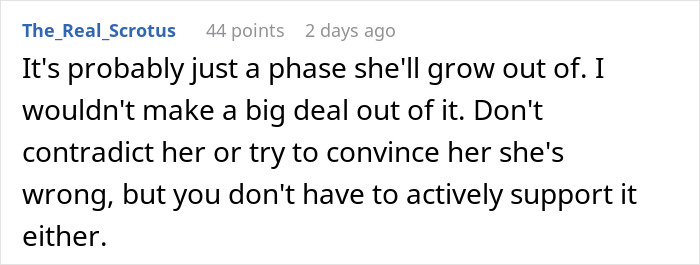
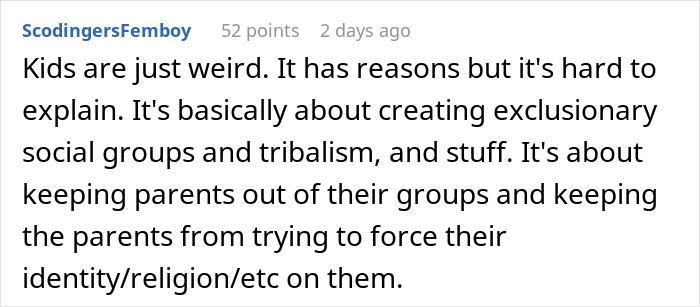


While others shared their personal accounts
